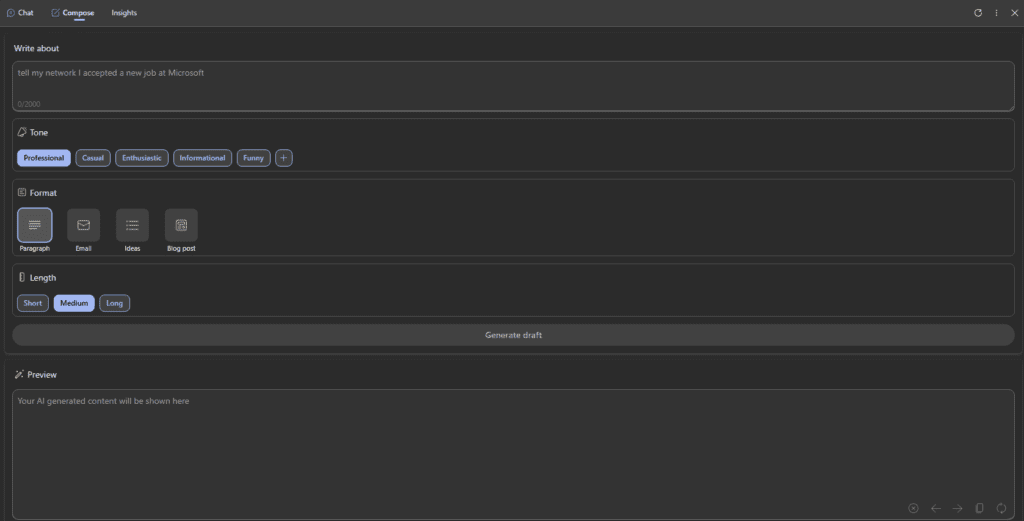
Table of Contents
Our Beliefs
- Ingenuity Over Automation: As a digital marketing agency, Coalition Technologies believes in the value of the human creative process, and we’re always going to value that over repetitive AI-generated content.
- Responsible Use: From omnichannel marketing to brilliant headless CMS ecommerce, we’ve never shied away from adapting to new trends and using them for our clients’ benefit. We’re not anti-AI; we just believe in using it responsibly.
- Augmentation: Our AI policy revolves around the core tenet that, at least for creative purposes, one should use AI to augment rather than replace. We treat AI as a tool that can assist our highly-trained team of professionals, whether it’s for SEO data analysis or web development.
- Maximizing Value: The tools we use and how we use them should always create value for the client, from cutting down on time-consuming processes to building innovative new workflows that allow us to outpace the competition.
The bottom line is that our approach to AI implementation is assistive. We see it as a tool that can enhance the abilities of already competent professionals instead of something that can replace them. Simply put, we believe in using AI-generated content initially for research, supplemental, and idea-generation purposes. We will only employ it for client work after vetting, modifying, and optimizing it as we see fit. Our mission has always been and will always be to drive tangible results for clients powered by decades of human experience and imagination.
AI & Ethics
As an industry leader, we’re well aware of the impact that a reckless AI policy can have. Artificial intelligence can revolutionize how we communicate, from generating incredibly detailed graphics to pumping out pages of copy in a second. However, we are always conscious of the significant drawbacks of that power. To that end, our AI policy for marketing operates with these conditions:
- Transparency & Accountability: Transparency is the foundation of any successful partnership between clients and their agency, and we live by that ideal. From our stance on AI implementation to regular copy updates, we keep you in the loop. Our strategists are always in touch with the clients right from kickoff day to ensure they understand and support the rationale behind our decisions.
We understand that our decisions can affect your bottom line, and we have the responsibility of working towards your goals ethically and transparently. - Bias: Our AI policy is deeply conscious of the bias inherent in AI-generated content. AI models are trained on data containing biases, propagating further when content is generated based on that data. This creates a dangerous feedback loop when that generated content is used as training data later, creating a cycle that is difficult to break. This ultimately leads to a genuine erosion of quality-generated content and AI tools.
Copyright and privacy around AI-generated content are currently highly dynamic and murky legal areas. Artists regularly see their original work being stolen by AI models without any real credit or monetary compensation, and that’s just one of many issues popping up with AI implementation right now. This is another reason we’re cautious in our approach to AI-generated content as an agency.
- Data Privacy: We take data privacy incredibly seriously. Aside from a careful AI policy, we adhere to data governance regulations and go the extra mile to follow data privacy best practices. We respect a client’s information confidentiality and ensure it’s never shared with unnecessary third parties.
AI For SEO – Is It Worth It?
Google’s stance on AI and SEO can shine some light on why we’re against using purely AI-generated content for campaigns.
While Google’s AI policy for SEO and marketing is evolving, they have recently softened their position. Google isn’t strictly against AI-generated content as long as it’s written for humans. This means that helpful AI content that is direct and helpful for searchers can potentially rank well, while spammy article mills will be penalized and eventually blacklisted.

Copilot, Bing’s AI assistant
So why does our AI policy disavow AI-generated content? Aside from the feedback loop and bias we mentioned above, we’re generally against using AI content because:
- Generators can only really guess what the correct answers are using the underlying sample data, and that output is often repetitive and even incorrect at times.
- AI implementation has direct implications for client liability. If an AI generator publishes a piece of content on behalf of the client, they can be liable for what is said there. AI can help with editorial oversight and quality control for writing, but nothing is safer than an actual expert working on the content from the ground up.
- AI-generated blogs are full of repetitive paragraphs in a style that knowledgeable readers can spot at a glance. We work with clients in various industries, from beauty and lifestyle to more technical areas like finance and tech. We’ve found that working with subject experts who can provide original, well-researched content always produces better, more readable output and ranks better.
- Google will always prioritize more helpful and original content. We prefer working with strategists who can cut out the fluff to produce the kind of work searchers seek. We’ve built our AI policy on the understanding that clients are looking for quality over quantity.
Google might have softened its stance on AI implementation lately. Still, experts understand that this area can undergo seismic shifts overnight, especially as the volume of AI-generated content grows online. There is no telling when Google’s policies and regulatory changes might penalize generated content even more, so it’s always safer to produce original human-generated articles.
We prioritize Google’s EEAT guidelines in our SEO copywriting process. These first-party guidelines highlight the importance of content that demonstrates Experience, Expertise, Authority, and Trustworthiness. As part of this, we produce our content using subject matter expert input, statistics, and an attitude that leaves zero room for fluff.
Grow With Us
As our AI policy shows, we’re as excited about the growth of powerful emergent technologies as anyone else. Still, as an agency, our respect for the human imagination and time-tested strategies has shown us better results than anything else. If you’d like to see these results for yourself, reach out to Coalition Technologies today for a free strategy review.
AI Policy FAQs
What is AI?
Artificial intelligence aims to simulate human intelligence. AI is a general field that branches into applications like natural language processing, machine vision, and speech recognition. People discussing AI implementation, particularly in digital marketing, use the term interchangeably with the more accurate term ‘machine learning.’ Machine Learning is a branch of AI that works on massive data sets. An algorithm is trained on this data to create a model that can perform tasks such as answering questions.
How can AI be used for digital marketing?
Tons of businesses have an AI policy for digital marketing. There are many applications of artificial intelligence for marketing, such as:
- Content: Digital marketing agencies will sometimes implement AI for content generation. Services like ChatGPT and Copilot allow users to input detailed prompts to request, for instance, a social media caption or a blog. The AI will use its dataset to generate an output that matches the prompt. Similarly, graphic designers can use AI to create images, adding qualifiers like a specific art style if needed. Businesses with AI policies are already using these services to produce commercial content.
- Research: ChatGPT can help agencies conduct research for content creation. This can range from quickly looking up information for a blog to full-scale outlines. Analysis plays a big role here, too. For example, agencies can use AI to analyze customer data and perform customer segmentation based on specific parameters.
- SEO: New AI-based tools are being built specifically with SEO in mind. Jasper is an interesting example of AI implementation here. Businesses can use this tool to find the best keywords for a given topic and suggest ways to improve page rankings based on competitor data.
Should I use AI for my marketing strategy?
In a survey, 83% of businesses stated that they prioritize AI in their policies. As popular as AI has become, you should be wary of depending on it entirely for your marketing strategy. Artificially generated results are not always accurate, and relying on a biased algorithm is no guarantee of SERP performance. Businesses that are going all-in with AI-generated content without expert oversight run the risk of being blacklisted by Google.


